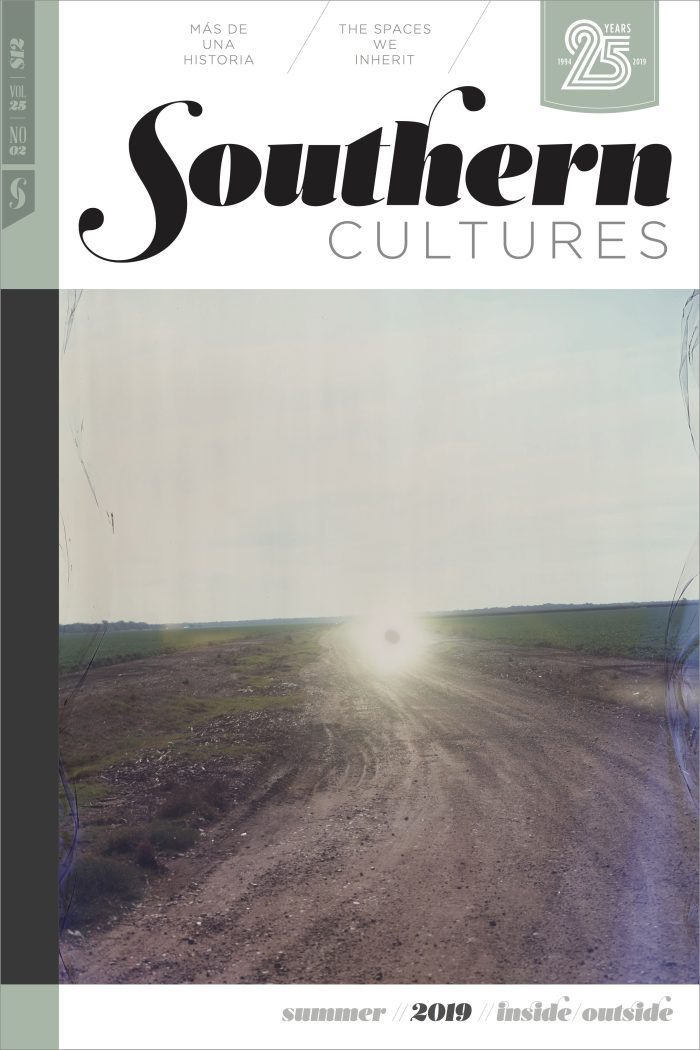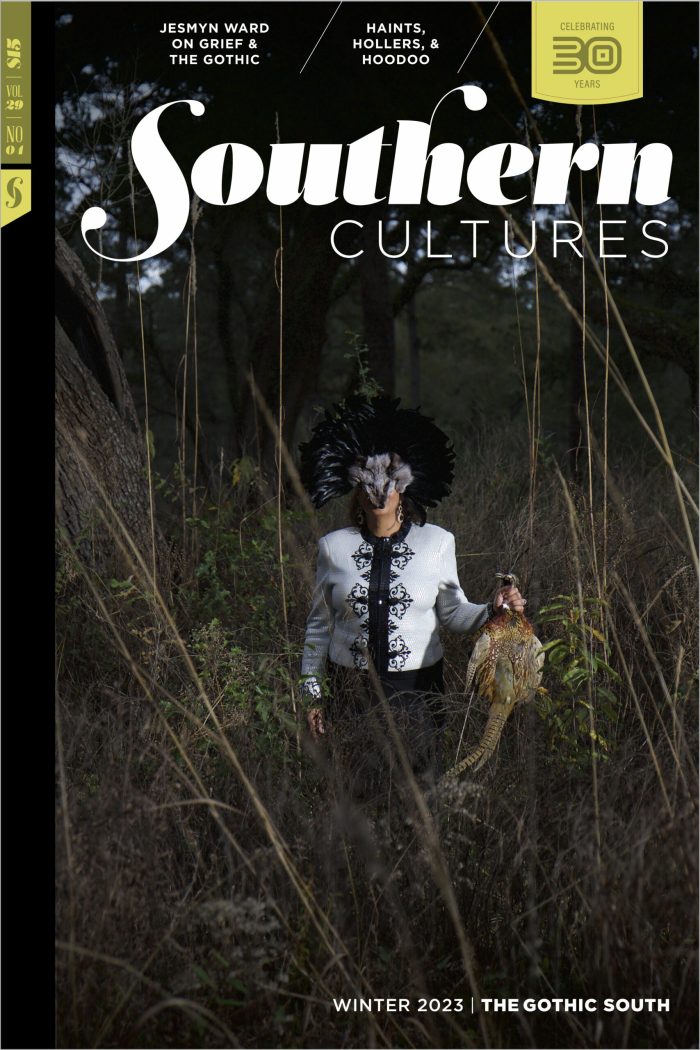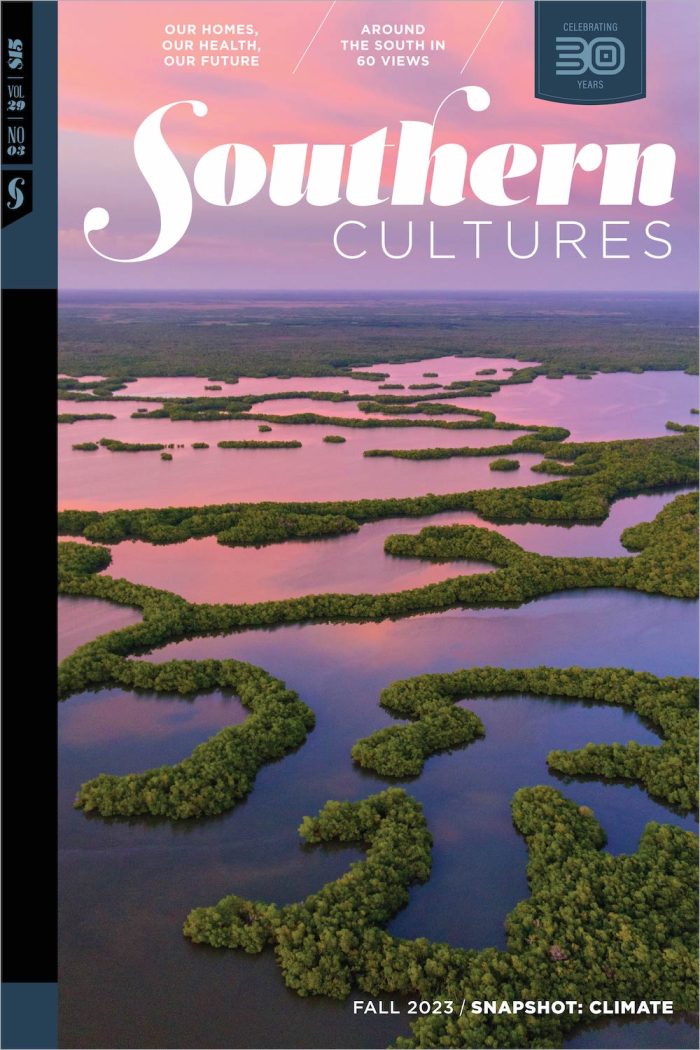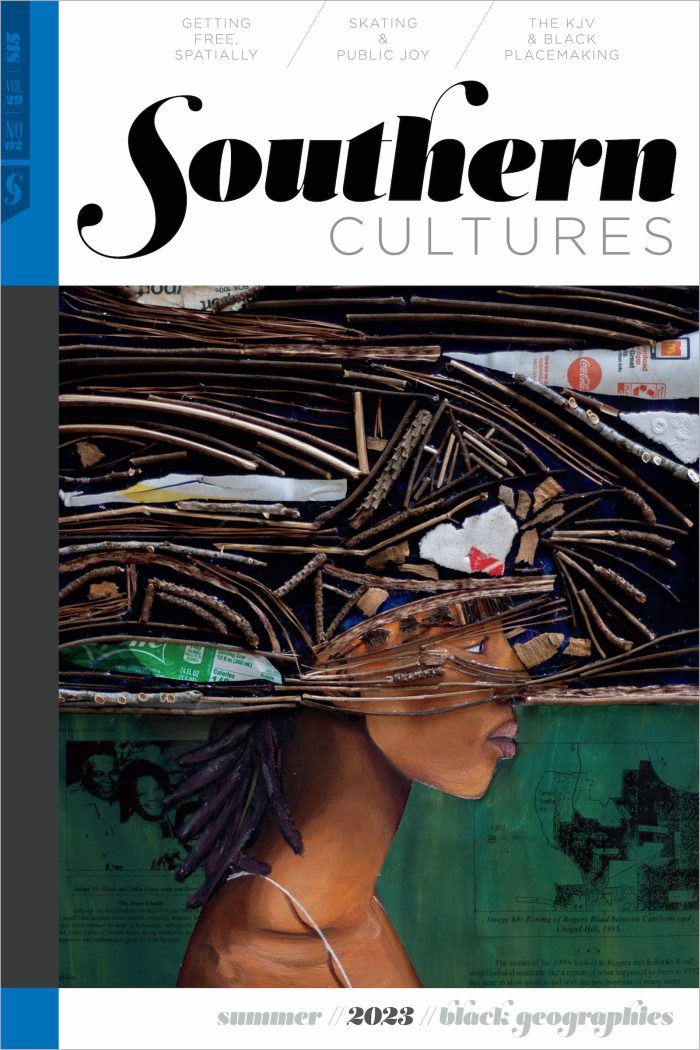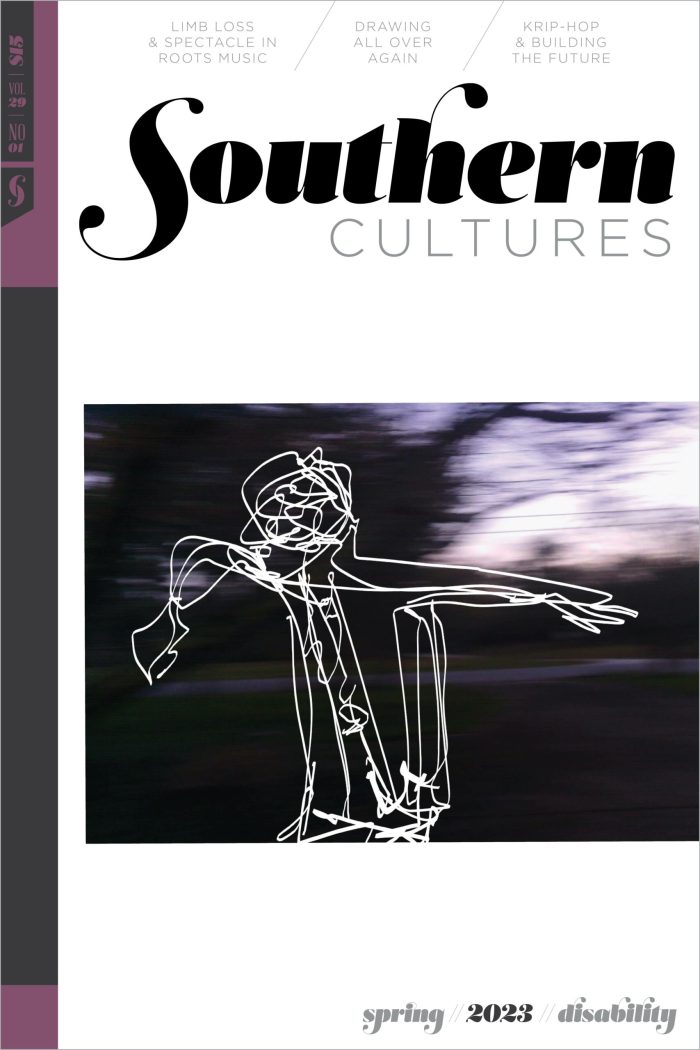Essay
BUY ACCESS
by Marcie Cohen Ferris
“The South has much to teach about the dangers and opportunities of belonging and exclusion, of being inside and outside the American experience.” In which I out myself as a southern outsider/insider. Raised a Jewish southerner, I am married to an agnostic folklorist from Mississippi with whom I share progressive politics. My household supports small-scale »
Essay
by William Sturkey
“I just want to let you know,” the older white man told me at a late-summer fish fry, “that my family owned slaves, and those slaves were happy.” This was mid-September of 2014, my second year as a postdoctoral research fellow at the University of North Carolina at Chapel Hill. The event was held at »
Essay
by Randall Kenan
At elegant gatherings and august meetings, I often scan the room and wonder aloud why I am, as people like myself are often given to ask, the Only Negro in the Room, or ONR, as Ta-Nehisi Coates and Natasha Trethewey have been known to note. Surely black intellectuals are central to these types of inquiries, »
Photo Essay
Selections from the South
by Jess T. Dugan,
Vanessa Fabbre
Representations of older transgender people are nearly absent from our culture and those that do exist are often one-dimensional. For more than five years, we traveled throughout the United States creating To Survive on This Shore: Photographs and Interviews with Transgender and Gender Nonconforming Older Adults, which culminated in a fine art exhibition and book »
Essay
by Erin N. Bush
“‘Delinquent’ girls like McNamar became the victim, the problem, the cause, and the evidence of other urban dilemmas within the reform rhetoric and agenda.” When sixteen-year-old Marie McNamar escaped the Virginia Home and Industrial School for Girls in May 1913, she intended to go home. She had gotten word that her father in West Virginia »
Photo Essay
BUY ACCESS
by Oliver Clasper
“These landscapes hold the remnants of five thousand distant voices.” If all photographs are abandonings, as the American critic Henry Allen once wrote, then how might we view photographs of lynching sites? Located for the most part in the geographic margins and the shadows of our collective memory, these landscapes hold the remnants of five »
Music
Kris Kristofferson, Authenticity, and Country Music's "New Breed"
by Alex Macaulay
Attendees at the 1970 Country Music Association awards were startled when Roy Clark announced that Kris Kristofferson’s “Sunday Mornin’ Comin’ Down” beat out Merle Haggard’s “Okie From Muskogee” for Song of the Year. Amid applause and some gasps, a dazed, disheveled, long-haired Kristofferson stumbled up the steps of the Ryman Auditorium, looking an awful lot »
Essay
BUY ACCESS
by Emily Lieb
“Every ‘inside’ has an ‘outside.’ Every boundary has a sentinel. Almost every backyard has a NIMBY.” In 1910, the Baltimore City Council made Jim Crow concrete. It passed an “ordinance for preserving order, securing property values and promoting the great interests and insuring the good government of Baltimore city,” which was intended to make it »
Memoir
by Monique Truong
We cannot understand the power and the meaning of food until we understand hunger. Hunger at its most basic is the lack of food, and therefore a body’s need and craving for food. If we are very lucky in this world, we feel hunger as a minor physical discomfort that can be readily sated: a »
Photo Essay
by Joanna Welborn,
Melinda Wiggins,
Lucia Constantine,
Daisy Almonte,
translated by Alejandra Okie Hollister
This article appears in the Inside/Outside Issue (vol. 25, no. 2: Summer 2019) and has been condensed. To view the article in its entirety, visit Project Muse (link below). This is more than one story. This is twenty-five years of narratives from farmworkers, mostly in the Carolinas, told in labor camp kitchens, on trailer porch »
Poetry
by Savannah Sipple
I’ll tell you what, Papaw was a drunk, the sweetest man alive.Sober: A good husband; a loving father; he worked hard regardless,but I’ve never heard tell if he was able to keep a jobor if the family moved because of his drinking. On a binge, he beat Granny.He’d come home at 2am and beat her »
